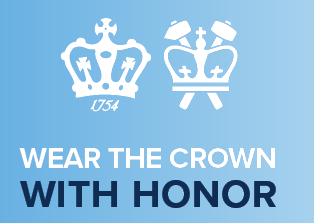What brings students and staff together to swap stories, grab SWAG, and eat ice cream?
Why Integrity of course!
Ambiguous situations can be tricky to navigate, but you don’t have to do it alone.
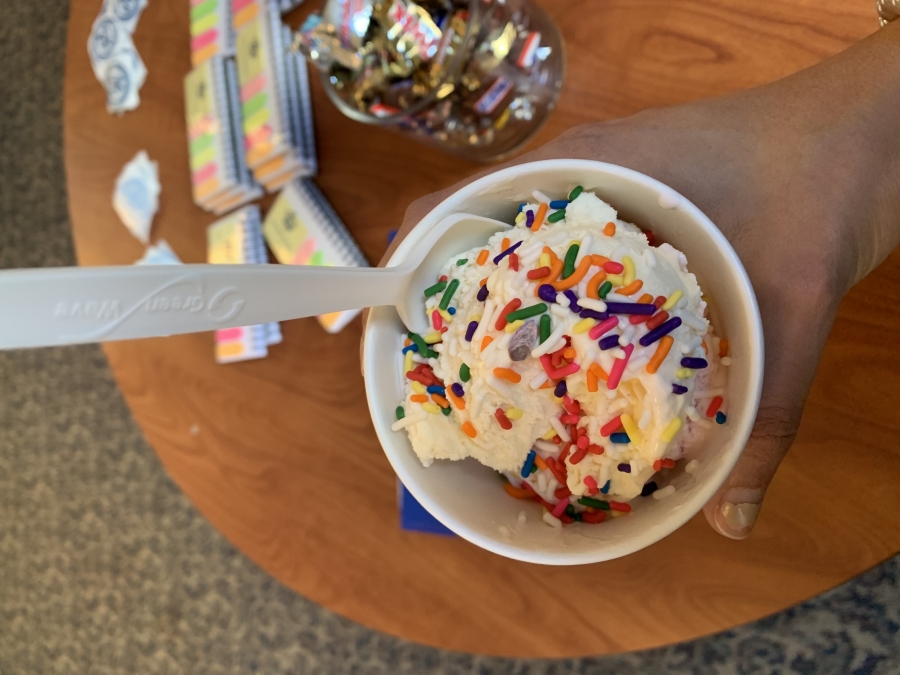
On February 27th, multiple offices came together to celebrate Academic Integrity Awareness Week, a partnership between Columbia College and Columbia Engineering.
There was ice cream, stories, free SWAG, and tips and tricks for navigating difficult ethical situations from staff from the Berick Center for Student Advising (CSA), Center for Career Education (CCE), Undergraduate Research & Fellowships (URF), Academic Integrity, and Residential Life.
Do you have what it takes to wear the crown?
Over 100 students stopped by to hear stories, ask questions, and learn more about Columbia’s Academic Integrity values: honesty, trust, fairness, respect, responsibility, and courage.
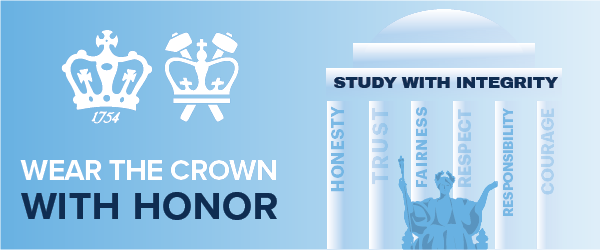
Dr. Victoria Malaney-Brown, from Academic Integrity, introduced office reps and connected main themes that emerged, which primarily centered around ethical decision making and reaching out to your support network and advisors when you find yourself in challenging or ambiguous situations.
To those of you who can’t wait to add those extra letters after your name –
Even before you take your Hippocratic Oath or sit for the bar exam, you’re going to be faced with some ethical quandaries.
Fortunately, Dean Megan Rigney from CSA has shared her insights from her work with students and alumni who are applying for professional schools, such as law or medical schools.
When you’re applying to professional school, ethical responsibility is extremely important in terms of accurately representing yourself and your accomplishments. — Dean Rigney

Candor in All Communications is Critical:
Dean Rigney shared the story of a student who misrepresented an experience because they wrongly assumed that their real story would ultimately be misunderstood.
She emphasized that if the applicant had shared their concerns with an advisor, the preprofessional team would have been able to reassure them and help them positively communicate the experience on applications.
Moral of the story; reach out for help!
If you’re a researcher at heart, both inside and outside of the lab –
You’ll want to cue into tips from Dean Ariella Lang through the lens of Undergraduate and Research Fellowships.
Dean Lang shared key information that ranged from the limited ability to negotiate when accepting a fellowship offer to ethical best practices, such as withdrawing your name from other applications and discontinuing the search process when committing to a position.
If you’re in the process of working on fellowship applications or searching for opportunities of interest, take advantage of the expertise offered by Undergraduate and Research Fellowships.
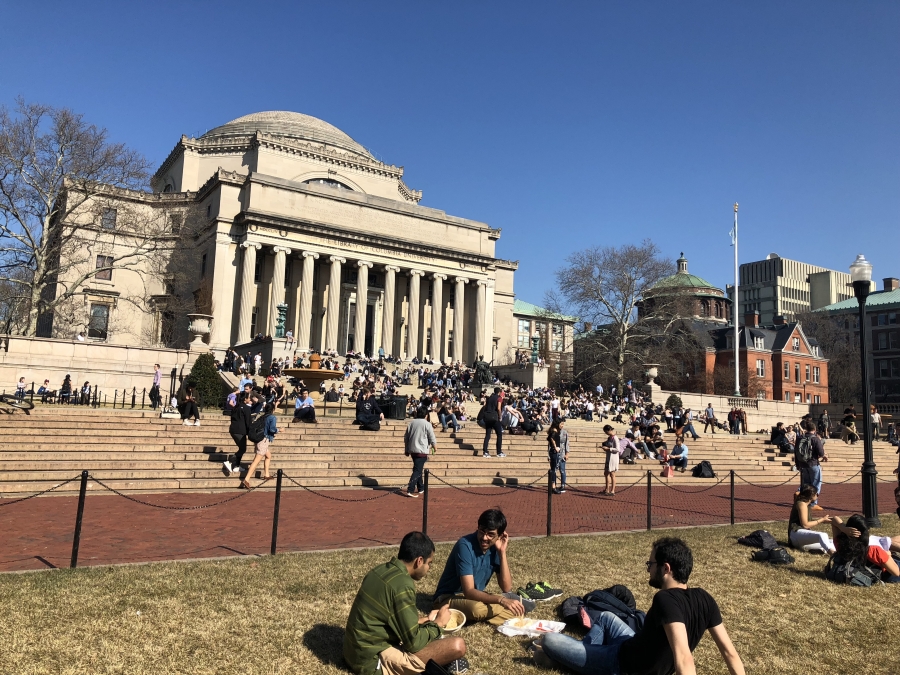
A Day in the Life of a Columbia Student –
Scott Helfrich, from Residential Life, highlighted the importance of integrity and clear communication when interacting with peers, professors, and/or advisors. Scott also mentioned the prevalence of and damage caused by “ghosting” in dating and academic life.
If you find yourself stuck in one of those inevitable awkward situations, Res Life can help you through.
Ethics Beyond Academics –
Try out your new ethical decision-making skills!
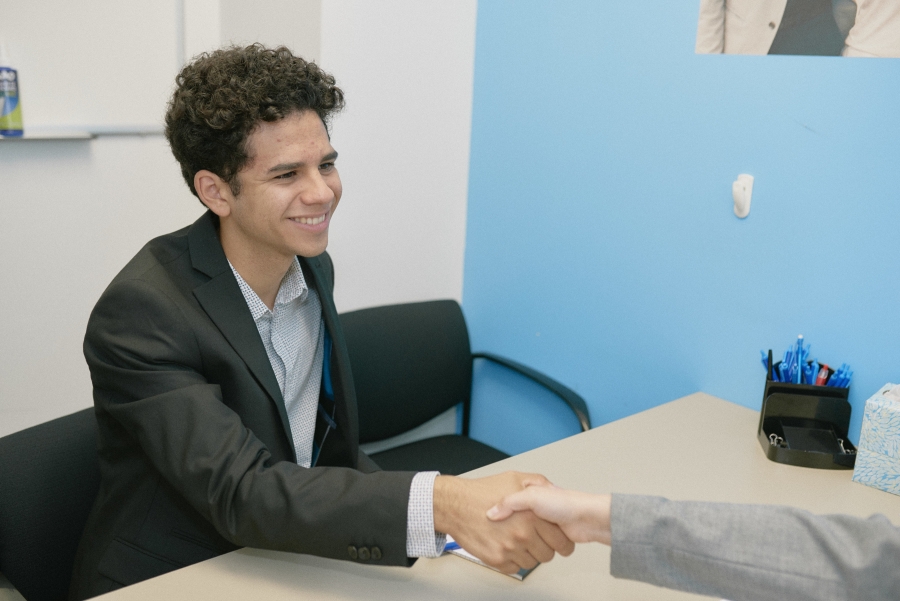
The situation: Shannen Dawli from the Center for Career Education shared that she’s observed situations where students feel pressured to accept a job offer but will continue interviewing for other positions, leaving themselves the option to renege and withdraw their acceptance of the offer if something better comes along.
How would you handle that situation? Would you:
- A) Definitely do the same thing. It’s the only thing that makes sense!
- B) Turn down the offer, cancel all interviews, curl up into a ball and decide that you never want a real job and will stay in school forever.
- C) Accept the offer, continue to interview, and then also accept any new offers that come your way. You can do it all!
- D) Work with a CCE career counselor to ask for more time to accept the offer. If more time isn’t possible, then either accept the offer and cancel your upcoming interviews or turn down the offer and continue to look for another job.
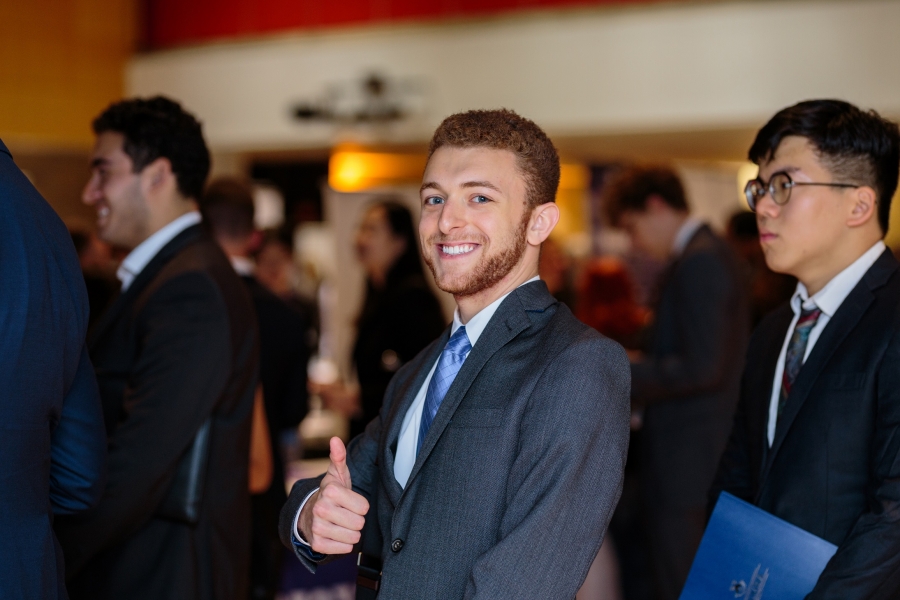
If you selected D then you’ve got integrity! Here’s just a couple of things to support your decision-making process.
Shannen stated that accepting an offer but continuing to apply can have a negative impact on your and Columbia’s reputation, and even cause the employer to no longer to want to recruit with Columbia University. Additionally, it puts your potential employer in a bad position, since they probably stopped recruiting for your position after you accepted.
Dean Rigney suggested trying to turn the situation around. Imagine an employer called you sometime before your negotiated start date to say they had continued to recruit for your position and found someone better and wanted to now withdraw the offer that you accepted. You’d likely find that appalling and unethical!
Basically, What We’re Saying Is:
Trust in the people at Columbia and it’s resources.
We are all here to help you navigate your professional career at Columbia and beyond.
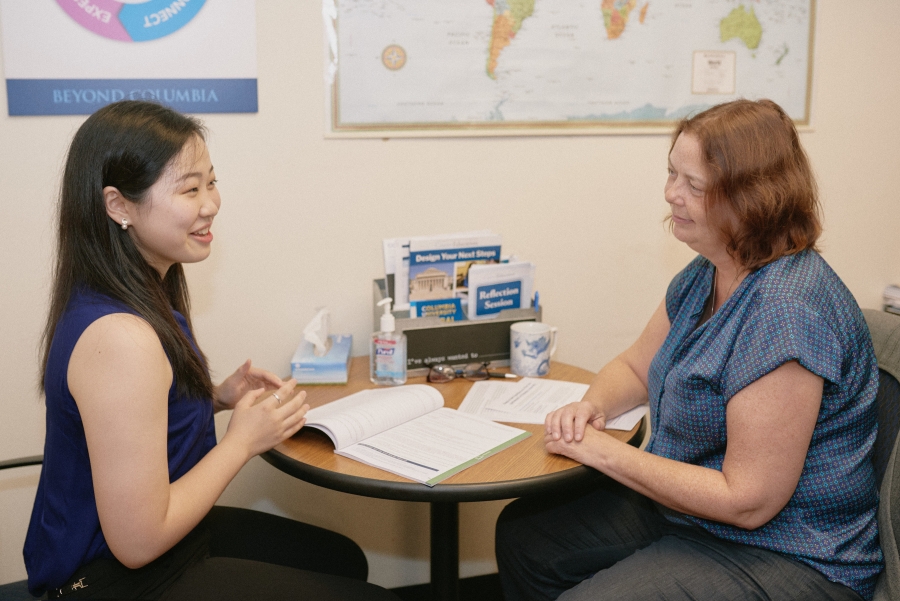
When You’re faced with a Professional ethical dilemma…
We’re here to help! Remember CCE can help you evaluate and negotiate offers, or walk you through the process of asking to extend offer deadlines. Our career counselors are happy to meet with you to plan your next steps at any point in your job search, including if you make a mistake or need to handle an uncomfortable situation!
But Don’t just take our word for it
Check out how academic integrity is defined at Columbia or contact Director Victoria Malaney-Brown.

